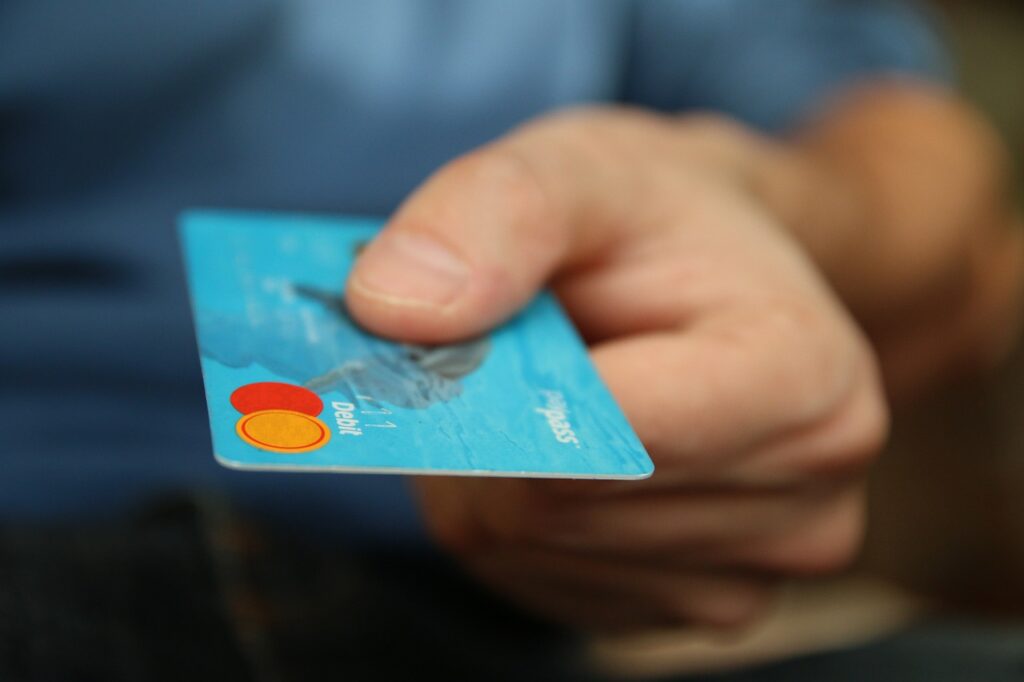How to Build Credit for the First Time

Building a line of credit is part of the transition into financial adulthood. Without good credit, you will have trouble with many of your needs, like buying a car or renting an apartment.
As your family expands, good credit is necessary for financing your first home. It is essential to your financial health that you establish credit, know your credit score and learn how to maintain or increase it. Here is how to build your credit for the first time.
What Is Credit and Why is it Important?
Most of the financial transactions of your past were probably direct payments, whether you used cash, a check or a debit card. You ate a meal at a restaurant, and you paid for it immediately when you were done. Credit is what happens when a lending institution takes a risk on you. When you go to a restaurant and pay your bill with a credit card, the lender actually pays the bill, trusting that you will pay them back.
In that way, lenders are putting their money at risk when they loan it to you. But how big is the risk? It depends.
Are you the type of person that pays back their debts? Or are you the type of person who has multiple debts in collections? Lenders need to know, and your credit score is how they’re gonna find out.
A good credit score signifies that you are a low-risk borrower. You consistently repay your debts in full and on time.
With a good credit score, you are seen as a person who is responsible with money. Therefore, you will secure loans at very low interest rates.
You will be approved for credit cards with elite benefits and lucrative cash-back rewards. Essentially, any money-lending experience (getting mortgage, leasing an apartment, financing a car) will be a pleasant experience because your lender can trust you.
What Goes Into a Credit Score?
Lenders measure credit in several ways. The most common measure of credit is the FICO credit score. This calculation was first used in the 1950s by the Fair Isaac Corporation and is scored on a range of 300 to 850. The scale is broken down into three credit categories.
Get your free credit score from Credit Sesame here (then come back and find out what it means)
• 300-650: Poor or fair credit – Lenders may be unwilling to extend credit to people in this category.
• 650-720: Good credit – You should not have much trouble securing small loans and basic credit cards.
• 720-850: Excellent credit – With these scores, you probably receive many credit card offers.
Every individual has three credit scores, one for each of the three main credit bureaus: Equifax, Experian and TransUnion. Each of these companies calculates your credit score a bit differently, but the basic FICO score calculation is the same.
Five categories make up the scoring system:
• Payment history: Your payment history makes up 35% of your credit score. This is why a missed payment can be such a problem for your credit record. A missed payment in the past increases the risk of one in the future.
• Amount owed: The more money you owe, the greater the risk that you will not be able to pay it back. The amount you owe is another significant chunk of your credit score, responsible for 30%.
• Length of credit history: The amount of time you have had credit is worth 15% of your score. One advantage of adding a teen as an authorized user on your credit card is that it gives him or her a longer credit history.
• New credit applications: Every time you open a new credit account, whether it is a new credit card or an auto loan, it increases the risk of payment failure. New credit applications are worth 10% in the FICO calculation.
• Types of credit: As lenders look at your credit history, they like to see a mix of credit types. A car loan requires regular payments for several years. A credit card only has payments when you use it. The types of credit accounts in your history are responsible for 10% of your score.
How to Know Your Credit Score
It is important that you know how to find your credit score. Fortunately, there are several easy options for tracking it down.
First, if you have a credit card, many companies have programs that allow cardholders to check their credit score for free on a regular basis. Some only give access to a single score from the three major credit companies. Others will let you see at least two.
Financial services websites like Credit Sesame provide another easy option. This site gives you a free credit check when you open an account. It can also give you monthly credit updates if your score changes for any reason.
Tips for Building Credit
Building your credit is important to your success. There are several ways to build, maintain or boost your credit rating.
Apply for a Secured Credit Card
Lenders offer secured credit cards as an option for people who do not have a credit history. To get a card, you must make a cash deposit with the lender. If you default on your payments, the lender keeps the deposit.
If you make your payments on time, the lender will return your deposit when you are done with the card. When you maintain good credit with a secured card, you will soon have the option of an unsecured card.
Apply for a Credit-Builder Loan
A credit-builder loan is a small bank loan made specifically to give you a credit history. Instead of giving you the loan, the bank holds the money until you pay off the loan with regular payments. This process establishes a record of credit.
Be an Authorized User on a Credit Card
By having your name associated with a credit card, you start a credit history. A parent, spouse or other relative can authorize you to use a card they already own. So long as someone is making payments on the card, your credit will improve.
This is also a strategy you can use to build credit for your children. Just keep in mind, some lenders give authorized user status less weight when they look at your credit history.
Pay Your Bills on Time
This simple habit has a huge impact on your credit history. It is a habit you must embrace and one you should try to instill in your children. A single late payment will affect your credit score for years.
Do whatever is necessary to remember to make payments by their deadline. Most banks will let you sign up to make automatic payments for regular monthly bills.
Keep a Low Credit Balance
Lenders pay attention to how much debt you carry. Work with your budget so you are not constantly adding to your debt but slowly paying it down. If at all possible, pay more than the minimum monthly payments.
This will lower the amount of interest you pay, decreasing your long-term costs.
Spread Out Credit Applications Over Time
Your credit score will lower if you apply for several lines of credit in a short period.
As you are starting out, it might be tempting to get a loan for a car, a payment plan for furniture for a nursery and a few credit cards. If you do this all at once, lenders will get nervous. They will be less likely to approve your application.
Does co-signing improve your child’s credit score?
When your child is ready to rent their first apartment, you may need to co-sign for the loan. Since your child doesn’t have a credit history, the lender will need your assurance that the monthly payment will be paid on time and in full every month.
Bare in mind, if your child does not pay the rent, you are responsible for making the payment. So make sure your kid is good with money and that you’ve taught them lessons in basic finance before you co-sign on anything.
Using Credit With Caution
As convenient as credit may be, you need to use it with caution. Every day, people discover that they have used their credit cards to dig themselves into a financial hole. A line of credit is not free money or extra income. It is a responsibility that you must pay back with interest.
Credit should be only one part of your larger financial picture along with your regular income, savings and investments. It is a helpful tool when you are purchasing big-ticket items that can assist you as you grow as a family.
However, as you get started, focus more on living within your means, establishing a reasonable budget and trying to save where you can. If you establish good overall financial habits, a strong credit score will follow. That’s how you build credit for the first time.





The word of caution about credit at the end, completes it. Comprehensive and informative. Good one 👍